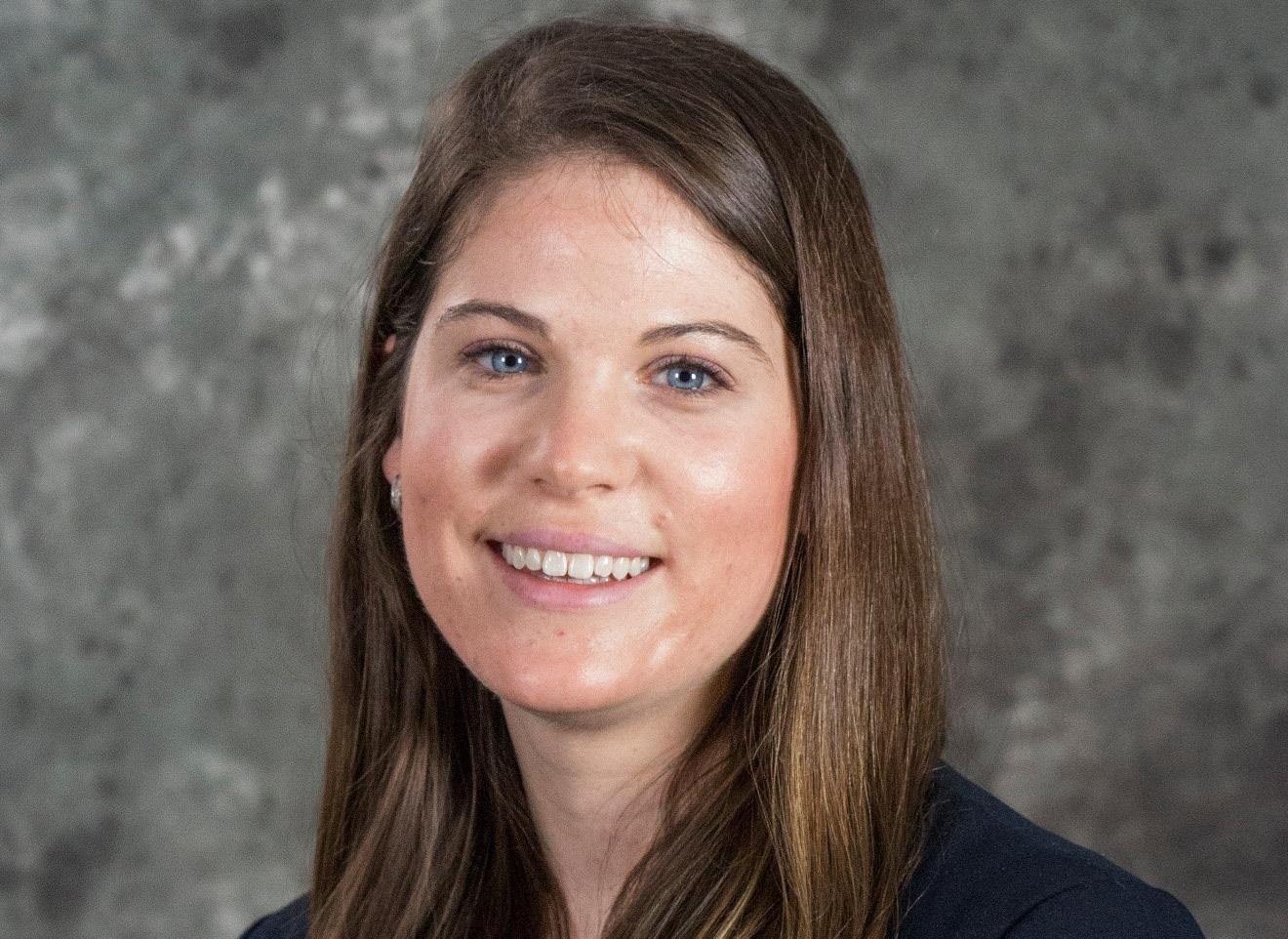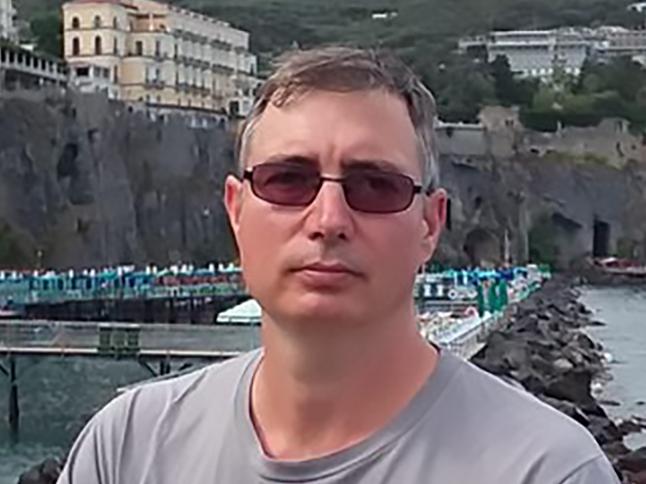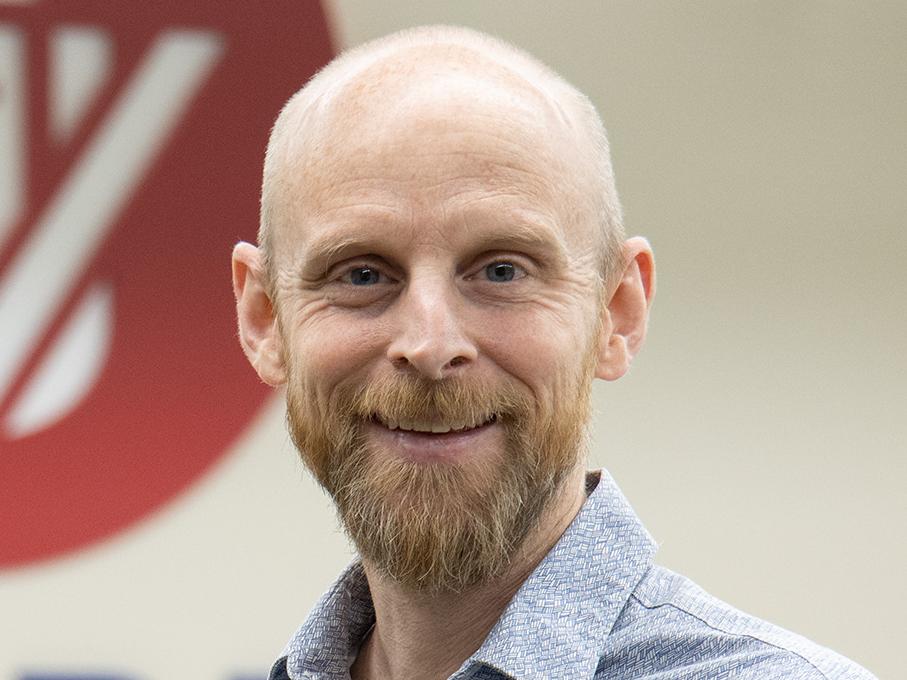Cameron Kiersch holds a Bachelor of Science in Nursing from the University of Iowa (2005 graduate) and a Doctor of Nursing Practice degree in Health Innovation and Leadership and a Healthcare Design and Innovation Certificate from the University of Minnesota. He has 14 years of critical care nursing experience.
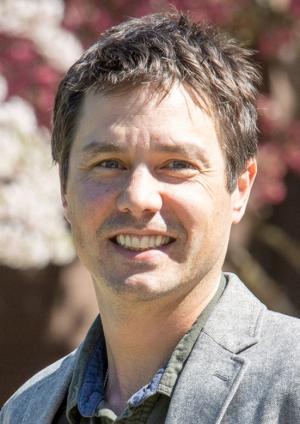
Kiersch is the chair of the Direct Entry Master of Science in Nursing (DEMSN) program at Viterbo University, where he has been a nurse educator since 2017. Prior to his role as DEMSN chair, Kiersch taught a variety of courses in the undergraduate nursing program, and he continues to teach one core seminar course, which includes students from multiple majors.
The DEMSN program, which launched in the fall of 2021, continues to grow. The first cohort of 14 students graduated last spring and 19 received their degrees this month. Twenty-eight are scheduled to graduate next May, while approximately 35 students are already registered to begin the program this fall.
“Our graduates and current students are our best ambassadors,” said Kiersch of the success of the program. “Their previous life experiences and baccalaureate education enhance their professional practice. That positions these graduates very well in the field of health care.”
Kiersch’s publications, Collaborative Improvement Model: A Quality Improvement Approach to Curriculum Revision in Nurse Educator and Making Advance Directives Visual: Introducing Young Adults to Advance Care Planning with Video-Recorded Advance Directives in Creative Nursing, blend innovation with design in the pursuit of a forward-thinking nursing curriculum.
With presentations at Creative Health Care Management: Relationship-Based Solutions for Today’s Health Care Challenges Symposium, The International Death, Grief and Bereavement Conference, and Assessment Technology Institute’s International Nurse Educator Conference, Kiersch illustrates diverse interests that transect the nursing profession.
Kiersch utilizes a systems-thinking approach to redesign curriculum, which prepares future nurses to lead interprofessional teams in the pursuit of solving complex problems like climate change and health inequity. Kiersch examines the intersection of climate and health and is steadfast in his commitment to educating future nurses about their role as planetary health advocates.
Kiersch was a recent guest panelist on the Wisconsin Nursing Association’s webinar on environmental health, where he shared his perspectives on the integration of planetary health into nursing curriculum.
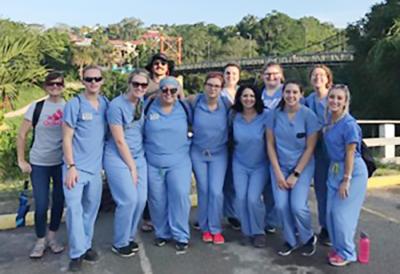
“When it comes to climate action and planetary health, it’s about securing clean air, water, and land for future generations,” Kiersch said. “It’s about ensuring equitable access to health and well-being, and that all starts with making sure our environment is healthy. It is the nurse’s professional responsibility to advocate for the health of all persons, which means nurses are well positioned to lead this movement. Now we just need to teach them how to lead it.”
Kiersch lives in La Crosse with his partner, Christa Kiersch, and their two children, 10-year-old Finley and 7-year-old Asher. He grew up across the Midwest, living in Nebraska, Iowa, and Illinois, before pursuing travel nursing, which took him to Texas and Colorado. He moved to La Crosse in 2012 from Fort Collins, Colo., and “would never dream of leaving.”
Kiersch is a year-round bike commuter and active in various community organizations. He and his family enjoy live music, experiencing new cultures, biking in all its forms, hiking new and interesting trails, camping (in tents), cooking, eating, and playing various board games.
How (and/or why) did you come to be at Viterbo?
I started as a clinical nursing instructor in 2015. I remained in this role for another year and a half or so before I applied for a full-time faculty position in the School of Nursing.
As an intensive care nurse, I saw so many conditions and witnessed situations that left me thinking, “why?” Why do we wait until the end of our lives to talk about what makes life worth living? Why don’t we change systems that are inequitable and contribute to poorer health outcomes for marginalized communities? Why as a society have we adopted extractive mentalities that negatively impact our health? Why aren’t nurses in leadership positions?
The list could go on and on, but at its core I began to see a pattern, why aren’t you doing something about it? This simple question led me to academia and specifically, Viterbo. As a nurse, I valued the impact that I could have on my patients and their families, and I thought to myself, what would happen if I could help other nurses develop that, too? Voila, Viterbo.
Now, I will also add that Viterbo’s mission, vision, and values spoke to me. I am not Catholic, but I very much identify with our Franciscan values, all of which, I might add, align with the nursing profession’s values. It is this alignment that has kept me at Viterbo, and it has inspired me to use my skills to help build and support our campus community, in addition to the next generation of nurses.
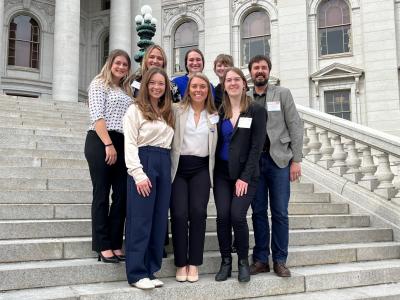
What do you love most about working at Viterbo?
The community, plain and simple. It’s the great people across all our campus; student life, facilities, dining services, and many more that recognize their part in helping our students achieve their goals. It’s this sense of purpose and community that is palpable on campus. Every time I walk across campus and encounter another Viterbo faculty or staff member or student, that individual not only lifts their head from their phone and acknowledges my presence, but they also do so with a smile. It's that simple gesture that I encounter nearly daily that conveys a sense of purpose and community that I value.
What inspires you?
Young people leading big initiatives. When I was younger nothing got me more fired up than someone telling me that I couldn’t do something. Impossible is just a word, and there will always be naysayers. It’s my passion to inspire young people to do big things.
I can think back at a few pivotal mentors in my life, and when I think about the times that I felt like something was impossible, it was those individuals who reminded me that big ideas require big leadership. I’m reminded by a poem by Marge Piercy called To Be of Use in the text All We Can Save:
“I love people who harness themselves, an ox to a heavy cart.
Who pull like water buffalo, with massive patience,
Who stain in the mud and the muck to move things forward,
Who do what has to be done, again and again.”
As Piercy goes on to write, this is real work, and for me, it’s inspirational. It’s my goal to be that spark that ignites a passion that encourages students to “take the reins”
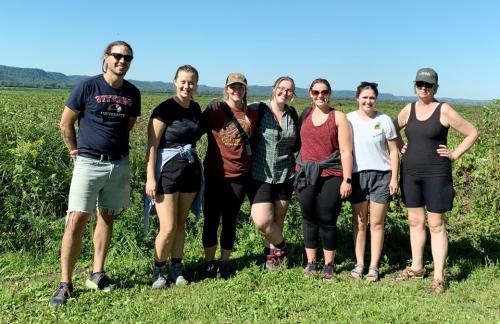
What advice would you give to students regarding heading out into “the real world?”
First, I would ask, what world are you living in? Isn’t this the “real world?” Sorry, dad joke.
I would tell them be bold, but not arrogant. I want our students to know that they have the skills to perform in the roles that they have prepared for. Experience is incredibly important, and I don’t want to undermine that, but youth and creativity and a fresh set of eyes are also incredibly important, so don’t be afraid to share your ideas.
Find a mentor. When I reflect on my first position as a critical care nurse, fresh out of nursing school, I quickly identify key mentors that helped me along the way. I watched how they spoke to patients, peers, and families, and I mimicked it. I witnessed incredible poise under pressure, and I took mental notes. I found them after an incredibly tough day on the unit, and I shared with them my concerns and sometimes my doubts. Without these mentors I would have been completely lost my first two to three years out of school.
Do you have a little-known fun fact about yourself that would surprise students and co-workers?
I love to dance, more specifically, I love dancing to bluegrass. I believe Steve Martin said it best: “The banjo is such a happy instrument. You can’t play a sad song on the banjo.” For me this translates to, let’s dance!
I have over 30 tattoos. I tell my patients I’m good with needles … sorry, dad humor again.
I never lived anywhere longer than four years until I moved to college, where I spent six years in Iowa City, Iowa.
What do others say about you?
I think my colleagues would say: Cameron is always willing to help. He is approachable, and he genuinely cares about me as a person. He is passionate about planetary health and its connection to the health of the La Crosse community. Some might even say, he’s a little odd. I mean who rides their bike in 20-below-zero weather?
Students say:
You are the most caring professor I have ever met. You genuinely show interest in your students and their success in learning which helped create a wonderful learning environment. You also thoroughly engage with them to further that professor/student relationship. Continue doing what you are doing and your students will thrive.
Cam has been a great instructor and a great mentor to learn from. He truly cares about us as students and being successful in the nursing field.
Thanks for a great semester and for always being so kind! I definitely learned a lot more this semester because you were approachable.
You are a teacher that I will definitely remember forever and you helped reassure me that I am 100% on the right path. I look forward to learning more from you.



